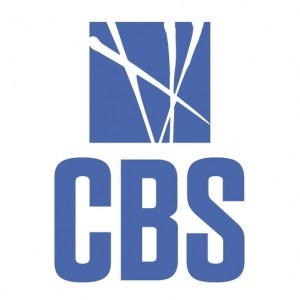Photos of university
The Bachelor of Economics at the University of Cape Town is a comprehensive undergraduate programme designed to equip students with a solid foundation in economic theory, quantitative analysis, and applied economics. This programme aims to develop critical thinking, analytical skills, and a deep understanding of economic processes that shape both local and global markets. Throughout the course of study, students are exposed to a wide range of topics, including microeconomics, macroeconomics, econometrics, development economics, international economics, and financial economics. The curriculum is structured to foster both theoretical knowledge and practical application, encouraging students to engage in research, policy analysis, and real-world economic problem solving.
Students will have the opportunity to learn from expert faculty members who are actively involved in research and policy advisory roles, providing insights into contemporary economic challenges. The programme emphasizes the importance of quantitative skills, incorporating courses in statistics, mathematics, and data analysis to prepare graduates for data-driven decision-making in various sectors. Additionally, students can choose specialised electives aligned with their career interests, such as environmental economics, public policy, or financial markets.
The Bachelor of Economics at UCT also encourages experiential learning through internships, collaboration with industry partners, and participation in seminars and workshops. Graduates of this programme are well-equipped to pursue careers in government, financial institutions, international organizations, consulting firms, or to continue their studies at postgraduate level. The programme is tailored to foster a nuanced understanding of economic issues, analytical rigor, and a commitment to contributing meaningfully to economic development and policy formulation. With a strong emphasis on research, ethics, and social responsibility, the Bachelor of Economics prepares students not only for successful careers but also for active engagement in public and private sectors that are vital to economic progress.
The Master’s specialising in Economics comprises four compulsory courses in the first semester, two elective courses in the second semester, and a compulsory minor dissertation. The degree runs over 12 months.
Compulsory (core) courses:
- ECO5011F Quantitative Methods for Economists
- ECO5020F Advanced Microeconomics/ECO6007F Microeconomics II
- ECO5021F Advanced Macroeconomics
- ECO5046F Advanced Econometrics
- ECO5023W Minor Dissertation
Elective courses: Two courses to be chosen from:
- ECO5003F Governance and Growth
- ECO5030S Applied Growth Theory
- ECO5050S International Finance II
- ECO5052S Natural Resource Economics
- ECO5057S Labour Economics
- ECO5062S Applied International Trade
- ECO5064S Views of Institutional and Behavioural Economics
- ECO5069S Applied Time Series Analysis
- ECO5070S Microeconometrics
- ECO5073F Problems of Globalisation, Industrialisation and Development
- ECO5074S Research and Policy Tools
- ECO5075S Macroeconomic Policy Analysis
- ECO5076S Development Microeconomics
- ECO5077S Industrial Organisation
- An average of at least 65% in an Honours degree in Economics.
- Applicants with degrees obtained outside of South Africa are encouraged (and in some cases may be required) to submit a Graduate Record Examination (GRE) score. A strong performance in the quantitative segment (above the 80th percentile) is expected.
- Students who have completed equivalent courses at the Master’s level may apply for exemption but not credits, from particular courses.
- Certified copies of official academic transcripts in ENGLISH (full transcripts for each tertiary institution attended)
- Certified copies of degree certificates in ENGLISH (for each tertiary institution attended where applicable)
- Applicants from universities situated in non-English speaking countries: TOEFL/IELTS certificate OR letter from previous tertiary institution stating “English as medium of instruction” for the programme
- Curriculum vitae (include work experience)
- A recent score (obtained within 3 - 5 years before application for admission) of at least 570 (paper-based test) or 230 (computer-based test) on the Test of English as a Foreign Language (TOEFL)
- A recent overall band score of 7.0 (with no individual element of the test scoring below 6.0) on the International English Language Testing System (IELTS).
- OR, noting that this may only be written at certain designated venues within South Africa, a score of at least 65% on the university's Placement Test in English for Educational Purposes (PTEEP).
Scholarships
- International & refugee scholarships
- Merit awards
The Bachelor of Commerce in Economics at the University of Cape Town offers students a comprehensive understanding of economic theory, empirical methods, and applied economic analysis. The program is designed to equip students with analytical and quantitative skills necessary to understand and interpret economic issues on both a local and global scale. It covers a broad range of topics including microeconomics, macroeconomics, development economics, and financial economics, providing students with a well-rounded foundation in economic principles and their real-world applications. The curriculum emphasizes critical thinking, problem-solving, and data analysis, preparing graduates for diverse careers in government, finance, research, and consultancy sectors. Students also have the opportunity to specialize further through elective courses and participate in research projects. The program is structured to include both theoretical coursework and practical components, such as internships and seminars, fostering an applied understanding of economic challenges and policy-making processes. The Department of Economics at the University of Cape Town is renowned for its research output and academic excellence, which enriches the learning experience through access to leading economists and up-to-date research. Graduates of this program are well-positioned for postgraduate studies or entry into professional roles that require critical economic reasoning and analytical expertise.









